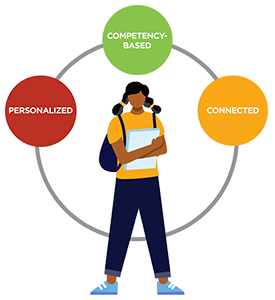Why technologists will not save education?
It certainly needs saving. We are perhaps looking a whole lost cohort - may be two - who will graduate in a terrible job market and struggle to make a start. Too many pupils, coming out of forced loneliness of a year, would struggle to adjust in colleges. Those who deferred their studies, will have to find the momentum again. And, as if after a great reset, the conversation what education is for has to start in earnest.
Technologists will offer no answers to any to these big, burning questions.
In fact, after the year when technologies became so embedded in education, it's role will be seen differently. In a way, this has been the best of the years and worst of the years for education technology: Technology's role as infrastructure has been recognised and technology's limitations to revolutionise education have been exposed. We now know that while technology may have answers to our many questions, technologists are often asking wrong questions.
Then, there are other deeper questions about education that came to the fore, thanks to the pandemic. The questions about well-being, engagement and attention are now being asked more frequently. The human connection has emerged as an essential - and not a corollary - ingredient of education. The technological view of education, as a one-way street between the knowledge-giver to the knowledge-receiver, has been debunked. Bill Gates rightly said that the nature of knowledge is still not properly understood and we are still two - or perhaps three - fundamental breakthroughs away from AI being able to do emotionally proficient jobs (aka, of the teachers).
The technologists, of course, do not care about such nuances. In the tech world, where money is raised on big, unambiguous claims, the complex discussions are completely unwelcome. 'What Tech Calls Thinking', a book by Adrian Daub, correctly exposes the uncritical superficiality that passes on as deep thought in these circles: Ditto in education. Pandemic has taken this to a dangerous territory and presented this as the only way of thinking about education. Big lectures are impossible - the logic goes - so there must be Zoom; not once the questions are asked - are big lectures needed - not the alternatives explored - it's time for college to go small and local!
Of course, this is a self-flattening hype cycle and in the end, after Yogi Berra, we will have Deja Vu all over again. But, in the meantime, for educators, it's a mistake to live in the hope of deliverance through technology. Rather, this is a moment to take over the technological possibilities and ask the questions that must be asked in education. This is the moment when the cart is put behind the horse and we get going again.


Comments